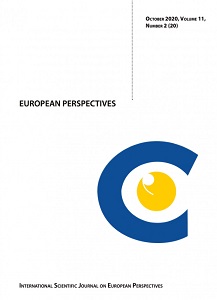Dayton Peace Agreement and Political Reforms in the Context of the Transition of Bosnian-Herzegovinian Society
Dayton Peace Agreement and Political Reforms in the Context of the Transition of Bosnian-Herzegovinian Society
Author(s): Hoda DedićSubject(s): Politics, Constitutional Law, Governance, Diplomatic history, Military history, Political history, Politics and law, Transformation Period (1990 - 2010), Present Times (2010 - today), Wars in Jugoslavia
Published by: IFIMES Mednarodni inštitut za bližnjevzhodne in balkanske študije
Keywords: Bosnia and Herzegovina; European Union; Dayton Peace Agreement; Constitution of Bosnia and Herzegovina; reforms; international community;
Summary/Abstract: In the post-Dayton political development of Bosnia and Herzegovina, some important reforms have been implemented. They have contributed to stability and supported the institution-building process. In the process of implementing reforms over the past 25 years, significant influence has been exercised through the actions of the High Representative for Bosnia and Herzegovina and the EU Special Representative in Bosnia and Herzegovina. Decisions and laws imposed by the High Representatives on the basis of the so-called Bonn powers, in the first years since the signing of the Dayton Peace Agreement, established essential elements of Bosnian statehood. Since the announcement of the closure of the Office of the High Representative in 2006, the exercise of the Bonn powers has been radically reduced. This resulted in a slowdown in the process of implementing internal reforms in Bosnia and Herzegovina. Political and technical assistance of the institutions of the international community remains to be necessary.
Journal: International scientific journal European Perspectives
- Issue Year: 11/2020
- Issue No: 2 (20)
- Page Range: 41-58
- Page Count: 18
- Language: English

